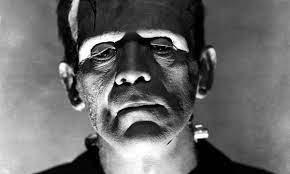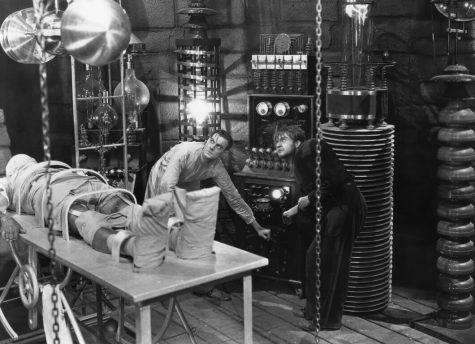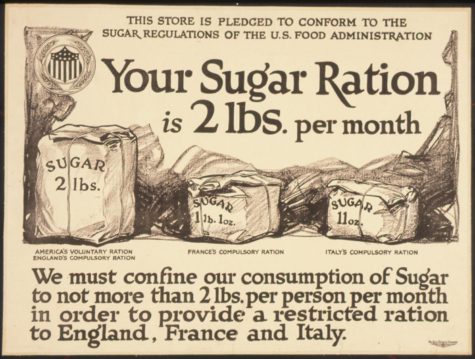The Effects of Racial Discrimination on the Brains of Children and Teens
From the election to the pandemic to the racial inequity issues, America is facing a divisive time in its history. While my life in a small town in Idaho may seem far from the epicenter of the conflicts, I am still experiencing the fallout. My school has closed down twice due to COVID and much of my learning is being done online now. The contest between President Trump and his opponent, former Vice President Joe Biden, causes issues between community members who cannot agree on who will be the best leader for our country. More than anything, though, the Black Lives Matter Movement, the fight over equal rights, and the illegal immigrant debate has struck a chord in my hometown. Everyone has an opinion and with nearly 45% of my high school student population identifying as Hispanic or Latinx, the topic of racism is a relevant issue. I have been thinking about this topic a lot and wonder how my peers and their families are impacted by it. It is rarely talked about publicly, but I know there has to be negative consequences of racism in my community. Racism is a massive issue to tackle, so I decided to examine the idea of racial discrimination, its impact on children and teens, and the impact it has had on my classmates and peers.
According to Harvard Health Publishing, racism can have negative effects on the brain of a child or teen. For instance, if a child or teen experiences racism, it will cause chronic stress that leads to changes in their hormones, which will then cause inflammation in the body, which is a marker of chronic disease. Some chronic stress can happen in short bursts, but for some children/teens who experience discrimination, they can suffer from the constant effects of chronic stress. Many immigrant children, for example, may live in fear of being separated from their parents through deportation. Some other minority children/teens may fear seeing their parents imprisoned or mistreated by law enforcement. In fact, statistics show that minorities, especially young Black and Latinx men from poverty and inner cities are jailed at much higher rates than their white counterparts. Statistics show, too, that African Americans, Latinx, and American Indians are more likely to live in low-income homes with unemployed family members. However, even if a child of a minority family lives in a wealthier area, research shows that they are still more likely to be treated differently by teachers and other students, such as getting punished for minor mistakes or the teacher underestimating the child’s abilities. All of these things, while not necessarily blatant racism, show the impact even systemic racism and discrimination can have on young people. These concerns and the environment these children/teens are forced to live in add to the chronic stress and poor mental health of the young people.
Knowing the statistics, I still wondered how and if racism and discrimination impacted my peers. I asked a few of my close friends who are Latino about their experiences with discrimination and the impact it may have had on them. The transcript of those interviews follows:
The first person I interviewed was Carlos. He is a senior and has been my close friend since we were children.
Me: Have you ever been racially discriminated against?
Carlos: I have not experienced discrimination when it was clearly directed at me in anger.
Me: Do you know anyone who has been, including family or friends?
Carlos: Yeah, my dad did. One day he was pulled over by the country police and they accused him of having drugs. They even pulled out their drug dog to search his car. They told my dad that the dog smelled drugs in his car, and when my dad told him that he didn’t have any, the officer kept yelling at him to tell him where they were. I don’t know what changed the cop’s mind, but after my father repeatedly explained that he didn’t have anything illegal in his vehicle, the officer finally let him go.
Me: How did this experience impact your father?
Carlos: He was both angry and sad because he was accused of something he would never do. He tried not to let it influence him too much because he knew the cop was wrong, but he did feel bad because was profiled because of his dark skin.
Me: What advice would he give to someone who experienced something similar?
Carlos: I think my dad would say to not let it get to your head, not to let anyone bring you down, and know your worth.
I questioned three more classmates, female Latinas who I have known for many years. Angela, Rosalba, and America are all seniors. Angela and Rosalba, had not been personally discriminated against, but Angela’s father had been and she was unwilling to talk about his experience. Her father, like Carlos’ dad, did his best to forget his experience and to live his life being the best person he could be. Rosalba had just witnessed a friend having racial slurs directed toward him. Again, Rosalba’s advice was to “brush it off and not let it bother you.” America on the other hand, had felt personally discriminated against. Her conversation follows:
Me: Have you ever been racially discriminated against?
America: Yes, I have been.
Me: Are you willing to share what happened?
America: Yes, my family and I were in a local store, when we realized that the cashier was staring at us and had been since we walked into the building. She kept her eyes on us the whole time we were shopping, and when we were paying, she looked at us strangely when we handed her our money.
Me: After what happened, how did you feel emotionally?
America: I was just upset, angry, and embarrassed.
Me: How did you overcome those feelings?
America: I tried to not think about it that much.
Me: What advice would you give to someone who experienced something similar?
America: Try not to think about it too much, we’re just normal people doing normal things; we shouldn’t be looked at differently.
Though the people I interviewed hadn’t experienced extreme discrimination, they all knew people who had. What I found most startling was the fact that each of my interviewees and even the people they spoke of felt that it was better to shrug off the experience, to let it go. What does that say about the foundations and depth of racism in our country then? Those that are attacked have to accept it and move on quietly and in the shadows? If they do speak out, will they only be regarded as rioters or violent extremists who want to destroy buildings and defund police? What is this repression doing to their mental and physical health? My research, though brief and not entirely scientific, awoke me to the sad state of inequality in our world. Our nation is believed to be the melting pot, the place of cultural diversity, peace, and acceptance. Yet, the average citizen has most likely experienced racial, sexual, class, religious, or gender discrimination and never even spoken of it due to fear or the belief that his or her voice doesn’t matter.







